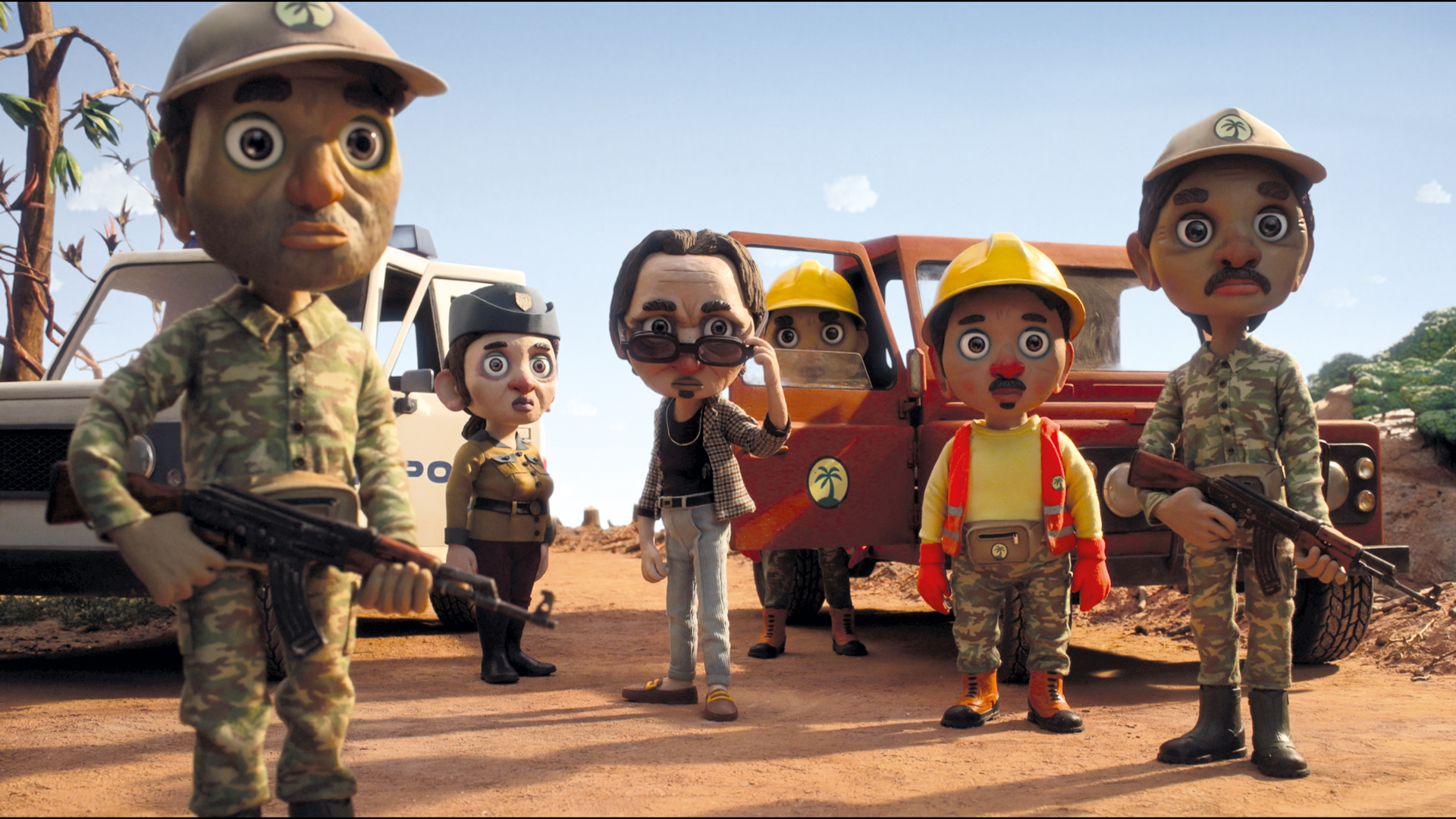When you see a stop-motion character in a hard hat operating construction equipment, it’s hard not to think of Bob the Builder. But in Savages, a sparky adventure about a young city girl getting lost in the Borneo jungle, the guys in bright yellow diggers are definitely the baddies. They represent mechanised progress steamrollering tradition just to maximise shareholder value.
Despite its charming visual style, fish-out-of-water premise and fun gags, such as an incongruous mobile phone ringtone, Savages is a deeply political film designed to raise awareness of an ongoing situation regarding Indigenous rights. Irreplaceable rainforest is being razed to make way for profit-generating palm oil plantations. The question is: can we fix it?
Swiss director Claude Barras has previous when it comes to making movies for children that don’t sugar-
coat the harshness of real life. His first full-length animation My Life as a Courgette, co-written with acclaimed French film-maker Céline Sciamma, was set in a social care home full of orphans who’d been traumatised in various plausible ways. Despite the unvarnished subject matter – at the time, Barras described his approach as “Ken Loach for kids” – the film was Oscar-nominated for Best Animated Feature in 2017.
It’s taken a while for Barras to complete his follow-up (when your métier is the painstaking art of stop-motion animation, you can’t really rush things) but Savages has been worth the wait. It retains the distinctive aesthetic of My Life as a Courgette – the characters have oversized heads like Funko Pop! figures but with huge expressive eyes and a weathered, lived-in look – and broadens its scope to explore the wonders and dangers of a tropical wilderness.
Read more:
- This summer proves Hollywood is out of ideas – but horror movies might just give something worth watching
- Yes, James Gunn’s Superman is an immigrant story. Just as it always has been
- Legendary filmmaker David Cronenberg: ‘Technology is not alien – it’s completely human’
Our hero Kéria is a young Swiss girl who has been dragged back to Borneo by her father Mutang. He works for the blandly named and casually rapacious Green Forest Company and has the logo-branded bumbag to prove it. Kéria’s late mother was from the local Indigenous community but her daughter seems totally disconnected from that side of her heritage. She does, however, form a bond with a baby orangutan who is cruelly orphaned by overeager loggers. “We both lost our moms,” she whispers to the creature, whom she cutely christens Oshi after the sound he makes while sneezing.





